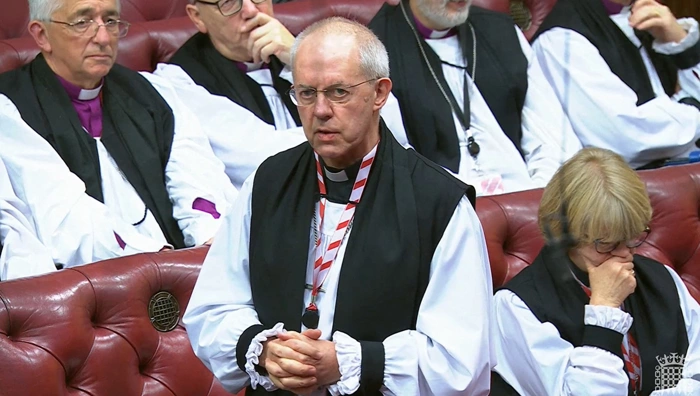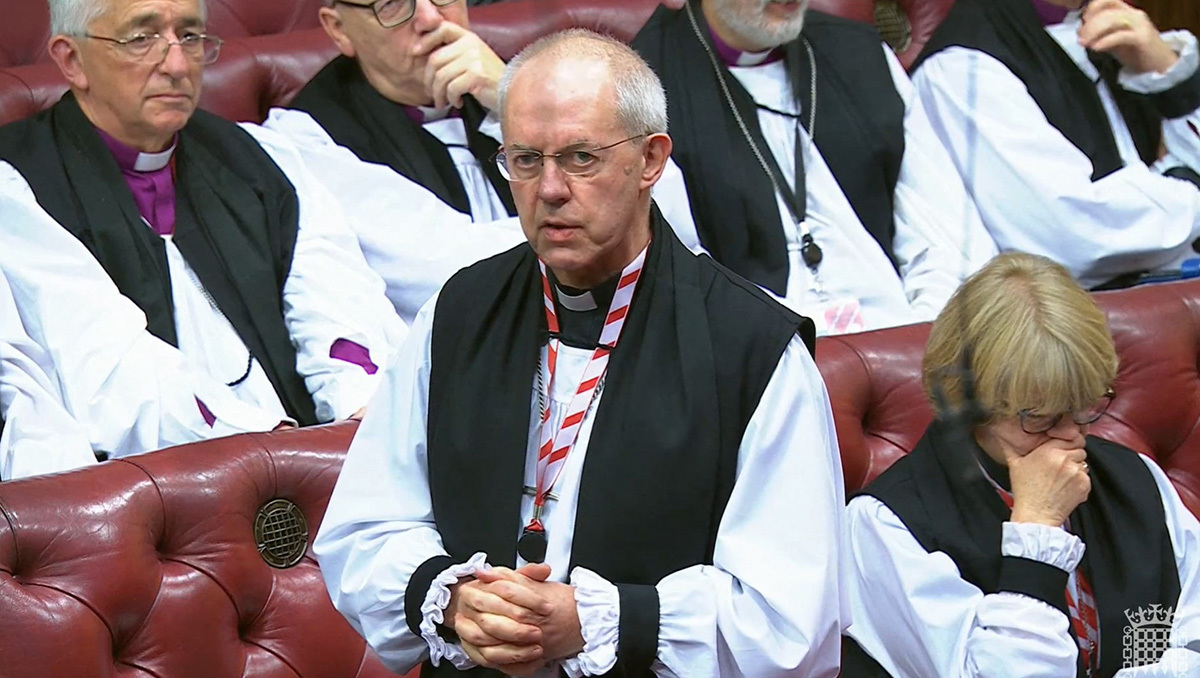Justin Welby Expresses Regret Over Handling of Abuse Allegations
In a recent interview, Justin Welby, the former archbishop of Canterbury, reflected on his tenure and the missteps in addressing serious allegations of sexual abuse by John Smyth. His feelings of remorse were evident as he discussed the impact of these events.

Welby candidly shared his “profound shame” over a farewell speech in the House of Lords that seemed to trivialize the Church’s safeguarding failures. These failures were highlighted in the aftermath of the Makin Review, which concluded that Welby could have taken more decisive action against Smyth, who passed away in 2018 while still under investigation.
In a conversation with Laura Kuenssberg on the BBC, Welby revealed that he regretted not resigning earlier, stating, “What changed my mind was having been caught by the report being leaked…as I reflected on the horrible suffering of the survivors, it increasingly became clear to me that I needed to resign.”
He acknowledged the overwhelming volume of historical child sex abuse cases as a factor in his inadequate response. When asked about the possibility of forgiving Smyth, Welby responded, “Yes, I think if he was alive and I saw him. But it’s not, it’s not me he has abused. He’s abused the victims and survivors.”
Addressing whether he sought forgiveness from the survivors, he stated, “Obviously, but it’s not about me. When we talk about safeguarding, the center of it is the victims and survivors.” He emphasized that forgiveness should not be demanded from survivors, noting, “Everyone wants to be forgiven, but to demand forgiveness is to abuse again.”
Reflecting on his time as archbishop, Welby admitted he was not as assertive as he could have been, commenting, “I should have pushed harder because I knew enough to know that people, very rarely, almost never abuse once.”
Welby’s final speech in the House of Lords drew criticism for its tone, particularly his remark about a “head” needing to roll, which many found insensitive. He later expressed deep regret over those words, describing them as “entirely wrong and entirely inexcusable.”
During the interview, he reiterated his apology to the victims, saying, “Just for the avoidance of doubt, I am utterly sorry and feel a deep sense of personal failure both for the victims of Smyth not being picked up sufficiently after 2017 when we knew the extent of it, and for my own personal failures.”
This article was originally published at Christian Today
This article was originally written by www.christianpost.com





